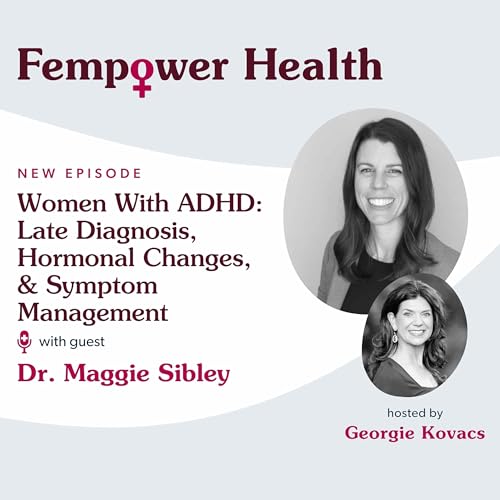If you’ve ever heard that menopausal hormone therapy can increase the risk of breast cancer, this new health report may surprise you.
In this bonus episode, women’s health and menopause management expert Dr. Mindy Goldman sheds light on the complex world of Menopause Hormone Therapy. We explore pivotal insights from the Ester Trial, revealing potentially safer transdermal estrogen. We talk about a fascinating Today article that uncovers the impact of statistical manipulation on reported studies, especially concerning the relationship between breast cancer and hormone therapy.
Dr. Mindy Goldman shares her expert opinion on how estrogen alone might be safer than we thought, and why synthetic progesterone requires a closer look. We also discuss the controversial use of testosterone in women, the challenges with federal laws, and FDA-approved options for improving libido.
Dr. Goldman is a Clinical Professor in the Department of OB/GYN at UCSF and the Director of the Gynecology Center for Cancer Survivors and At-Risk Women. In addition to her role as Midi’s Chief Clinical Officer, she’s a nationally recognized expert in the management of women’s health issues, including menopause, for women with cancer or at high risk. She helped author guidelines for the American College of Obstetrics and Gynecology (ACOG) and has won several notable awards.
Discussed in this episode:
- Dr. Mindy’s work with breast cancer survivors as an OBGYN
- Common myths of menopause hormone therapy
- A discussion on the ESTHER Study and recent menopause data release in Today
- Risks and safety of estrogen, progesterone, and testosterone therapy
- FDA-approved drugs for women’s sexual function
- Gender disparities in medical research
- Hormone therapies and other treatment options for high-risk populations such as cancer survivors
- Menopause symptoms in breast cancer treatment
- Hormone therapies, medications, and lifestyle strategies as post-cancer treatment options
- Dr. Mindy Goldman’s professional experience as a menopause advocate combining breast oncology with gynecology
“It's important to realize that there aren't national guidelines that talk about the use of hormones in people at high risk for cancer, which includes people with a family history, people who have had prior biopsies with atypical change, people with genetic mutations, and people with cancer. The standard of care has always been not to use hormones in those situations because the thought was that hormones could increase the risk of breast cancer or increase the behavior of breast cancer.” - Dr Mindy Goldman
Related to this episode:
- Resources and episodes on Perimenopause & Menopause
-
- Menopause health report (Dec 2023): https://pubmed.ncbi.nlm.nih.gov/37847875
- ESTHER Study: Learn more.
- Dr. Goldman’s story: www.joinmidi.com/post/mindy-goldman
- Dr. Mindy Goldman on Linkedin
- Midi Health: www.joinmidi.com
- Menopause...
 44 m
44 m 39 m
39 m May 14 202439 m
May 14 202439 m 38 m
38 m Apr 16 202443 m
Apr 16 202443 m 58 m
58 m 44 m
44 m 52 m
52 m
